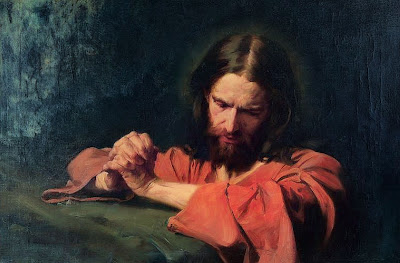First, the binding of Satan affirms that evil has a definitive end. The dragon, the ancient serpent, is cast into the abyss, unable to deceive the nations. This is not just a promise for the future but a reminder that Christ has already defeated sin and death through His cross and resurrection. Though evil still operates in the world, its power is limited and its days are numbered.
Second, the last judgment is a moment of accountability. The dead are judged according to their deeds, as written in the scrolls of the apocalypse. Here is a reminder that, in the end, our choices, our actions, our witness to Christ all bear eternal weight.
Finally, we read of the new heaven and new earth, the culmination of God’s redemptive plan. The holy city, the new Jerusalem, descends adorned like a bride. This is the promise of renewal, where all things are made new and where God dwells fully with His people. It is a vision of hope, reminding us that the end is not destruction but transformation.
As we stand on the threshold of Advent, these readings prepare our hearts for the season of preparation and anticipation. Just as we prepare for the celebration the birth of the Savior, we also prepare for the fulfillment of the Kingdom of God.
The Gospel parable of the fig tree Jesus reminds us to stay awake, to discern His presence in our lives and in the world, and to prepare for His coming.
Like the fig tree, the signs of God’s Kingdom are all around us. In moments of grace, in the beauty of creation, and even in the trials we face, God is at work. So, take time during Advent to pause, reflect, and recognize His presence.
But also, use this Advent to align your life more closely with God’s will. Seek reconciliation, perform acts of charity, and deepen your prayer life.
Let Advent be a season where you nurture hope in your heart, trusting in God’s promise to make all things new.
May we live as witnesses to the Kingdom of God, ready for Christ’s coming, and confident in the promise of a new heaven and a new earth. Amen.
- - - -
Trusting in God’s promise of renewal and justice, let us bring our prayers to the Lord, who reigns over all creation and prepares us for the coming of His Kingdom.
For the Church, that she may guide the faithful to live with vigilance and hope, proclaiming the coming of God’s Kingdom with courage and love
For world leaders, that they may work for justice, peace, and the dignity of all people.
For our community, that we may discern the signs of God’s presence in our lives and live each day in preparation for Christ’s coming.
For those who suffer from illness or injustice, that they may stand firm in faith and find strength in God’s promise of ultimate victory over evil.
For those who have died, that their names may be found written in the book of life and that they may share in the joy of the new heaven and new earth.
Almighty and merciful God, , hear our prayers as we await the coming of your Son, and guide us to live as faithful witnesses to your Kingdom. We ask this through Christ our Lord.















